The Vital Connection Between Water and Humanity is September’s Sustainability Theme
_20250917102730.jpg)
Our Vision in September
There’s plenty of water in the universe without life but nowhere is there life without water.” – Sylvia A. Earle, Sea Change: A Message of the Oceans (1995)
“I read this half-century-old quote above my desk whenever I look up from the screen. Over the years, I’ve trained myself to do this, since my eyes would quickly dry out without shifting focus. The change of focus has been vital not only for my eyes but also for our relationship with water.
A glass of water beside me reminds me that the human body is two-thirds water. I feel fortunate. Thanks to water protection movements, we have preserved some of our reserves, so I will not go thirsty. Still, there are places on our planet where the situation is worse. Through international cooperation, however, we are working to ensure access to clean drinking water for all beings, human and nonhuman alike. By now, in 2045, clean drinking water has become a universal human right, and protecting it is one of our highest priorities, free from profit interests.
Years ago, energy-intensive purification was necessary due to pollution. But nature’s own purification systems have proven to be far more effective. The use of plastic is a thing of the past, and special microorganisms have dealt with the microplastics that remained in our drinking water.
As I look out the window, I watch the raindrops fall. This was once rare, but thanks to our joint efforts, we are now mitigating and adapting. Although extremes remain more frequent than at the beginning of the century, we have learned to live in harmony with them by applying nature’s ingenious solutions. Water molecules roll through the pipes into a rain garden, where they are stored in the soil and vegetation for times of drought.
In the distance, I see the vast trees of the restored floodplains. The now-regular Mediterranean cyclones that occur in early autumn bring life-giving and replenishing floods to the floodplains after the summer drought. This September was no exception. These floodplains, restored marshes, and wetlands have become the most valuable water reservoirs, serving society and regenerating wildlife. We have come to understand the meaning of the quote: There is no life without water, and we must protect them both.”
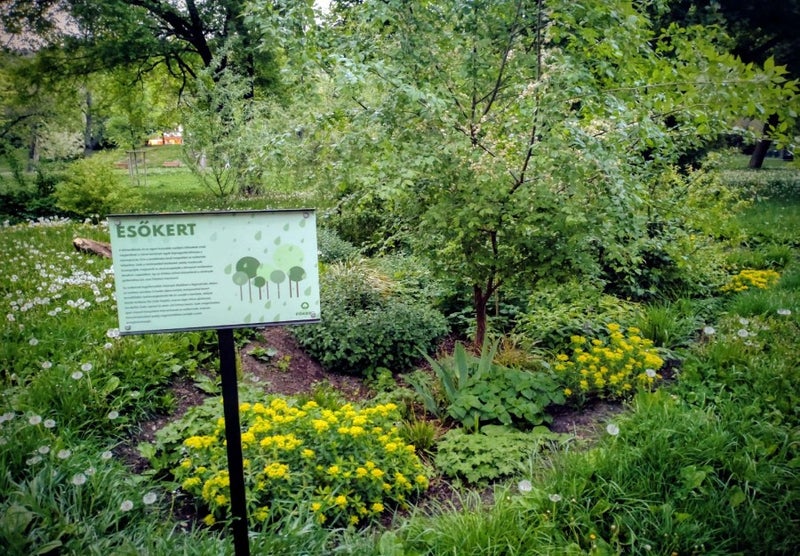
The photo was taken in Vérmező Park in District I, where several rain gardens can be found.
2. Focus on Water – Why Is Protecting Our Waters Important?
Water is the basis of life – essential for healthy ecosystems, agriculture, and everyday life. Hungary has long been considered a water-rich country, but in reality, preserving water and managing water-scarce periods pose increasing challenges, especially in the drought-prone Great Plain.
Due to climate change, precipitation patterns are becoming more extreme. While sudden, heavy rainfall occurs at times, longer drought periods are also becoming more common. The rapid drainage of surface waters and current water management practices often fail to retain water in the soil and landscape. Additionally, degraded soil conditions further complicate sustainable water management.
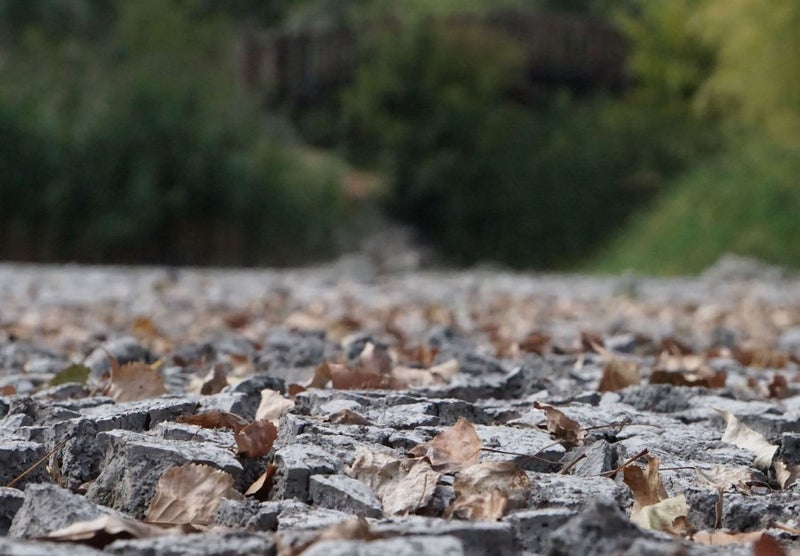
Irrigation is often suggested as a solution. When adapted to local conditions and implemented on a small scale, it can be effective. For instance, volunteers watered young trees across Budapest that could not reach deeper water layers during the summer. This initiative can still be joined via the Beeco platform.
However, on a larger scale, irrigation in agriculture faces significant limitations. According to data from the Hungarian Central Statistical Office, only 2.2 percent of Hungary’s agricultural land was irrigated in 2022, and just over 4 percent had legally authorized irrigation rights. These systems primarily use surface and groundwater resources, which decrease significantly during drought periods. Additionally, irrigation involves considerable losses due to evaporation. Therefore, significantly increasing irrigated areas not only requires huge investments, but is also environmentally questionable and not necessarily feasible.
Of course, there is no simple solution to this complex problem. Cooperation among many stakeholders is necessary. Retaining and storing water in the landscape and soil can provide a foundation for sustainable water management in the future. On a smaller, urban scale, rain gardens are becoming more common. On a larger scale, restoring previously drained wetlands, such as floodplains, marshes, swamps, and small streams, can provide solutions. In this regard, we recommend the short WWF documentary Our Wasted Waters, which is also available with English subtitles.
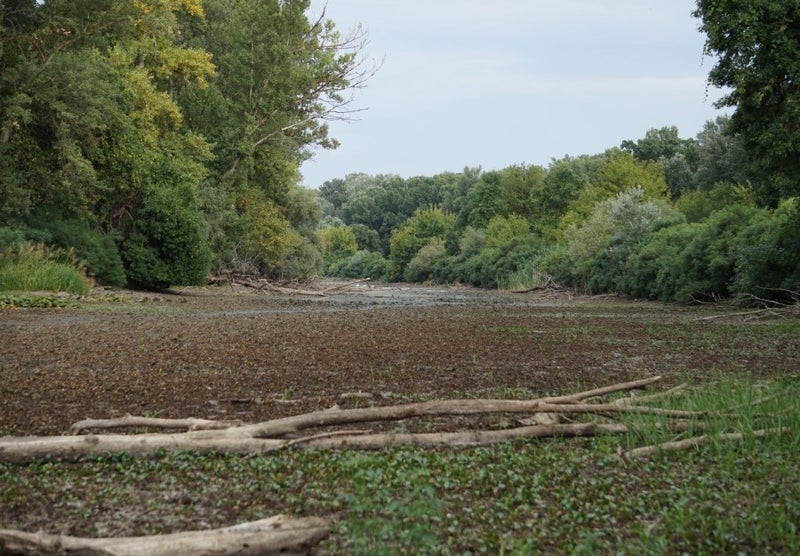
Similar separated riverbeds and oxbow lakes may also be suitable for temporary water retention. The photo was taken in Lakitelek, in the former riverbed of the Tisza, which had naturally meandered before river regulation.
In flooded areas covered with water and vegetation, there is more time for infiltration. Restored ecosystems are also crucial for preserving biodiversity. These systems also play a key role in water purification. Beavers, for example, are true ecosystem engineers and allies in restoration. They hold back water and slow down streams with their dams, which has a significant positive impact on the entire system.
Solutions in small scale: What is a Rain Garden?
Rain gardens are shallow depressions filled with vegetation that collect and absorb rainwater. This reduces rapid runoff and eases the burden on urban sewer systems. Rain gardens also provide habitats for insects, birds, and plants, and they improve the microclimate.
At Corvinus University’s Gellért Campus, rain gardens demonstrate to students and visitors how to put natural water retention and biodiversity support into practice.
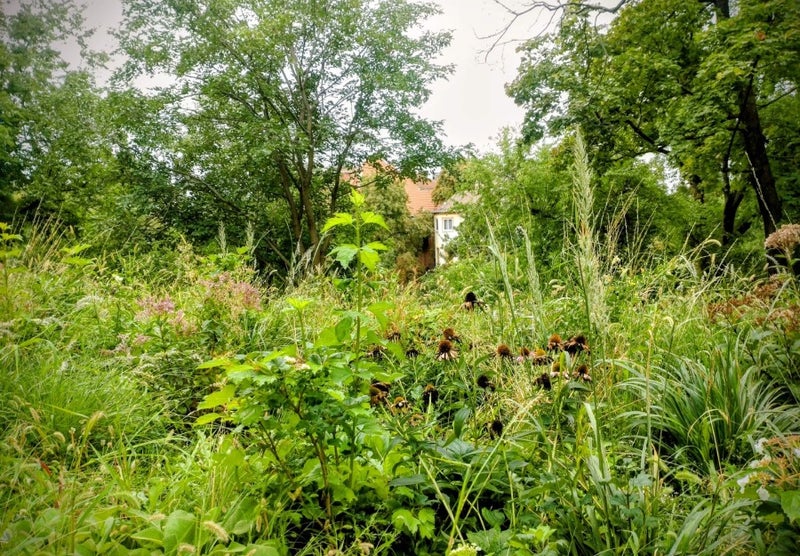
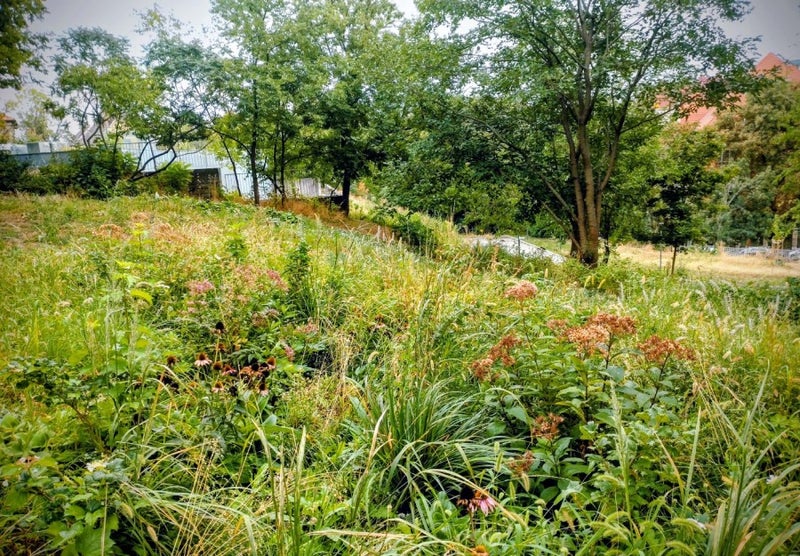
Rain gardens can also be found in the garden of Corvinus Gellért Campus, which, in addition to retaining water, also protect the hillside from erosion.
September Challenges
-
Bring your own water bottle to Corvinus and refill it at one of the water stations offering filtered water! By giving up PET bottles, you reduce microplastic intake for yourself and for the environment as well. Whenever possible, choose tap water!
-
Calculate how much water you use in a single day (drinking, washing and personal hygiene, laundry, cooking, dishwashing, watering plants, etc.). Compare this with the Hungarian average (103 liters/day). Could you reduce your consumption anywhere?
-
Measure how long you shower. An average shower lasts 8 minutes, which uses about 65–80 liters of water. How much could you save if your shower only lasted 3–4 minutes?
-
Write down the foods you eat in one day and check the amount of water needed for their production on the Water Footprint Calculator. How much water was needed for your daily diet?
-
If you have a garden and water it regularly, estimate the amount of water used in a year. Do you think this irrigation is necessary, or could it be reduced?
-
Join Beeco’s volunteer “tree-watering” program using the app below. Is there a tree near your home that you could help water?
Events
Join us for our garden walk on Wednesday, September 24 at 5:00 PM, where you can discover the Gellért Campus garden being renewed according to ecological principles, along with the rain gardens.
Right after that, take part in the first screening of the Eco-Film Club on September 24 at 6:00 PM, where we will show Balázs Szendőfi’s documentary Traces of the Sződ-Rákos Marshes, followed by a discussion (Please note that the film and the discussion will be in Hungarian. The following film clubs will be in English starting in October.).
Come to the Researchers’ Night on September 26 at 6:00 PM, where we will discuss soil water retention and the Corvinus Science Shop LOESS – Soil Health in Education research project.
On the same evening, get to know the carbon and water footprint of artificial intelligence in a session starting at 7:00 PM, right after the soil program.
+1 Investigate what water-related problems are typical in your area! Water scarcity, drought, flash floods, summer drinking water shortages, or water quality issues? Is there a civil organization you could join to help address the problem?
The Sustainability Theme of the Month project will continue at Corvinus University in the autumn semester of 2025, focusing on a different topic each time. We welcome any suggestions for topics, related projects, ideas, or comments at dean.sustainability@uni-corvinus.hu.